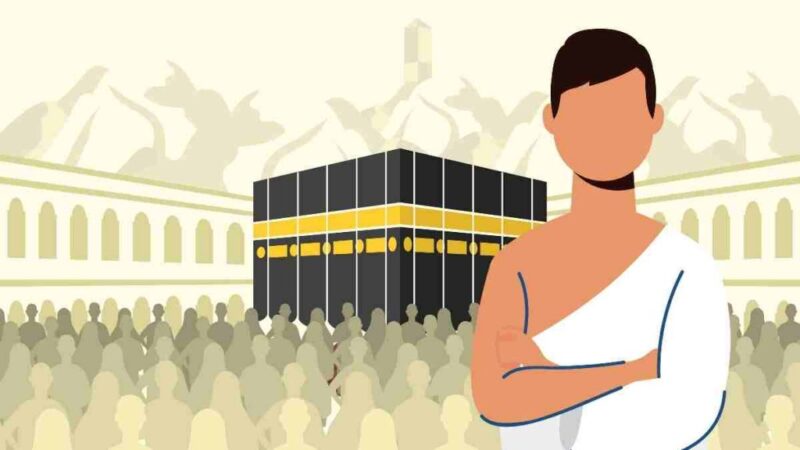The Best and Worst Sleep Times According to the Prophet, What Are They?

[ad_1]
So that the sleep we do is worth the reward, we should start to identify the best and worst sleeping times that must be avoided according to the Prophet’s habits.
When did you decide to sleep? When tired, sleepy or just want to sleep? Did you know, sleeping in Islam can be worth the reward as long as it is done at the times that are recommended.
Not only that, choosing the right bedtime can also bring health benefits to the body. Conversely, sleeping at the time that is prohibited can bring badness to the culprit.
So, so that the sleep we do is worth the reward, we should start to identify the best and worst sleeping times that should be avoided according to the Prophet’s habits.
Check out the reviews.
Best Sleep Time According to the Prophet

There are seven healthy sleep habits in the style of the Prophet Muhammad, peace be upon him, that can be imitated. It has been proven, with this habit, the Prophet during his life only experienced pain twice.
In addition, as the word of Allah SWT in Surah Al-Ahzab verse 21 that the Prophet Muhammad sallallaahu ‘alaihi wassalam is the best uswah hasanah (example).
O Allah ِرَ وَذَكَرَ اللَّهَ كَثِيرًا
It means: “Verily, the Messenger of Allah has a good role model for you (namely) for those who hope in (the mercy of) Allah and (the arrival of) the Day of Resurrection and he mentions Allah a lot.“
So, here are the 7 best sleep times in the style of Rasulullah SAW that can be emulated:
1. Take a Short Nap
The Messenger of Allah only recommends taking a nap only for a moment. It was narrated from Anas ra, the Prophet Muhammad SAW said:sleep for a while during the day, for satan does not take a short nap.” (Narrated by Abu Nu’aim).
2. Not Sleeping Before Isya
Hadith from Abu Barzah ra, he said, “That Rasulullah SAW did not like sleeping before Isya and talking afterward.” (Narrated by Bukhari).
3. Go to bed early and wake up late
Aisha ra said, “He sleeps early in the night and wakes up at the end of the night and then prays.” (Muttafaq Alaih).
4. Sleep Qaylulah
Qaylulah means little. The point is that the Prophet Muhammad used to sleep for 10 minutes after midday.
This bedtime is highly recommended because it can stretch the muscles and restore our stamina. If it is usually termed in cool language, that is power snapsnamely short sleep time is also effective.
Not only at the end of the noon time, the term qaylulah can also be placed at bedtime before performing the midnight prayer in the middle of the night. The Prophet himself also used to do this kind of sleep, namely after midday for a while as well as when carrying out qiyamul lail.
Worst Sleep Time According to the Prophet

Sleep can also revitalize the body’s skin and refresh the soul. However, it turns out that according to the Prophet, there are five worst sleep times to avoid.
1. Sleep in the morning after Fajr prayer
Sleeping in the morning will harm the body’s health. dr. Kevin Adrian Djantin explains the health hazards of sleeping in the morning. These health hazards can lead to diabetes, obesity, heart and blood vessel disease, inattention and mood swings.
Besides being unhealthy, the Prophet Muhammad SAW did not recommend sleeping after the morning or morning prayers. From Sakhr bin Wadi’ah Al-Ghamidi radliyallaahu’anhu the Prophet shallallahu ‘alaihi wasallam said: “O Allah, bless my Ummah in the morning” (Narrated by Abu Dawud 3/517, Ibn Majah 2/752, Ath-Thayalisi p. 175, and Ibn Hibban 7/122 and an authentic sanad).
In the book Madarijus Salikin, Ibnul-Qayyim has said about the primacy of the early days and the makruh of wasting time sleeping, he said: Including things that are makruh for righteous people. Because sleeping between the morning prayers and the rising of the sun, this time is very precious.
Morning is the start of the day and also the key. Apart from that, morning is also the time for blessings to be given down, blessings to fall, and the start of the day and to carry out all the activities of that day so that morning becomes this expensive time.
2. Sleep after the Asr Prayer Before Maghrib
There are many facts that explain that sleeping after the Asr prayer or before Maghrib can harm the health of the body. If a person sleeps at that time they will feel dizzy, dazed, and feel body aches.
This happens because changes in the body’s circadian rhythm have a major effect on the automatic functioning of various functions and organs of the body.
Imam Abu Bakr Al-Marrudzi Rahimahullah narrated, that Imam Ahmad once said: “it is disliked (makruh) for someone to sleep after asr, it is feared that it will endanger (sanity) his soul.”
The explanation confirms that if you sleep too often in the afternoon it will make your soul or mind worse.
3. Sleep Before Isya Prayer
Sleeping before the Isya prayer until dawn, it is not recommended to be prone to sleeping too long. Study Stephanie Rec from the University of Oxford suggests sleeping more than 9 hours can cause nightmares.
Nightmares occur because it is vulnerable at that time the eyes move quickly so that nightmares can occur. A Muslim is the fastest to sleep at 08.00 or after performing the evening prayer. Then waking up to perform the Fajr prayer at 04.30 means sleeping for about 8 hours and 30 minutes.
It was narrated from Abu Barza ra:That Rasulullah SAW. Said: “The Messenger of Allah hated sleeping before the evening prayer and chatting after it” (Narrated by Bukhari 568 and Muslim 647).
The majority of the Prophet’s hadiths explain that it is makruh to sleep before the evening prayer. Therefore At-Tirmidhi (1/314) said: “The majority of scholars say that it is makruh to sleep before the evening prayer and talk afterwards“.
4. Sleep After Finishing Eating
Sleeping after eating is not recommended because digestion does not run optimally. This can be harmful to the health of the body. Sleeping after eating can increase the risk of having an attack of ingestion due to the hard work of the digestive system.
This also has an impact on increasing blood pressure. Blood sugar and cholesterol levels that can trigger a stroke. From Aisyah, radhiyallahu ‘anhu, that the Prophet Muhammad SAW said: “Don’t go to bed immediately after eating, because it can make your heart hard.” (Narrated by Abu Nu’aim).
5. Sleep All Day
It’s not good to sleep all day, except in circumstances and conditions that don’t allow it, such as being sick. Lots of sleep can kill the heart, cause laziness, and disturb the health of the body. Too much sleep is also not recommended in Islam and the law is makruh.


